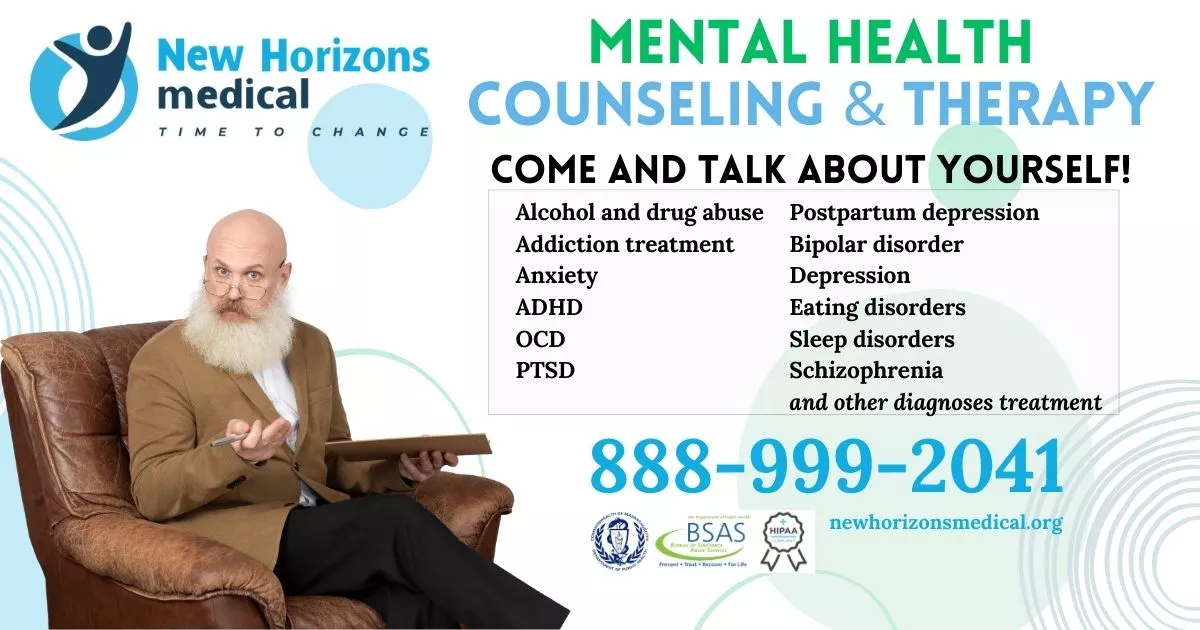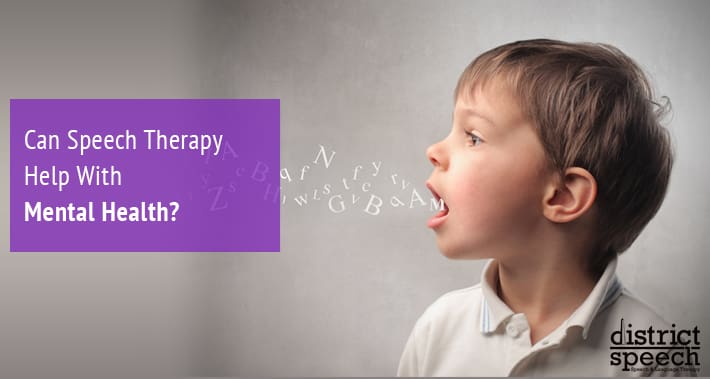Opening the Keys of Mental Health And Wellness: An Overview of Counseling and Therapy Alternatives
Mental wellness is a complex and important aspect of overall health. Various counseling and therapy options exist to attend to numerous emotional obstacles. Each approach provides one-of-a-kind benefits and approaches tailored to individual needs. Comprehending these options is important for anyone seeking to improve their mental health and wellness. Cognitive Behavioural Therapy. What variables should one think about when discovering these avenues? The solution may disclose a path to a much healthier emotional state
Comprehending Mental Health And Wellness and Its Value
Psychological health includes the psychological, mental, and social wellness of individuals, significantly affecting just how they think, feel, and act. Its importance can not be overemphasized, as it affects every aspect of life, consisting of partnerships, work efficiency, and overall lifestyle. People with great mental health and wellness often tend to manage tension better, maintain healthier partnerships, and make notified choices. On the other hand, inadequate psychological health can lead to emotional distress, impaired performance, and various mental illness, which may call for professional treatment. Recognizing psychological health is necessary for acknowledging the indicators of distress and the demand for assistance. Awareness also promotes empathy and lowers preconception, encouraging people to look for help when essential. By prioritizing mental health and wellness, areas can foster environments that support emotional wellness, ultimately resulting in healthier, more resilient people. This foundation serves as an essential step towards efficient mental health counseling and therapy choices.
Kinds Of Therapy Techniques
Counseling techniques differ commonly, each customized to meet the special demands of people seeking support. Among the most usual kinds are cognitive-behavioral therapy (CBT), which concentrates on determining and transforming unfavorable thought patterns, and person-centered therapy, which emphasizes empathy and acceptance. Psychodynamic treatment explores unconscious processes and past experiences to comprehend existing habits, while solution-focused brief therapy aims to determine services as opposed to examine problems.Additionally, family members treatment addresses relational characteristics and interaction within households, promoting much healthier communications. Group therapy provides a public area for participants to share experiences and sustain one an additional. Other approaches consist of existential therapy, which urges individuals to find meaning and objective, and art or songs therapy, which uses innovative expression as a healing tool. Each strategy provides unique methods and approaches, allowing clients to find one of the most appropriate method for their individual growth and recovery journeys.
Exploring Different Therapy Methods
In the domain name of mental health and wellness counseling, numerous treatment methods use unique techniques to treatment. Cognitive Behavior Therapy highlights the connection in between habits and ideas, while Psychodynamic Therapy checks out subconscious influences on emotional well-being. Furthermore, Mindfulness-Based Strategies promote present-moment understanding as a way to boost emotional policy and general psychological health.
Cognitive Behavior Modification
Cognitive Behavior Modification (CBT) attracts attention as one of one of the most commonly practiced and looked into methods in mental health and wellness therapy. This approach concentrates on the affiliation in between thoughts, actions, and feelings, stressing that changing unfavorable thought patterns can lead to enhanced emotional health and behavioral modifications. CBT is structured, generally entailing a limited variety of sessions, and intends to gear up people with functional skills to manage their signs and symptoms. It is effective for a selection of conditions, consisting of anxiety conditions, clinical depression, and post-traumatic anxiety condition. By utilizing strategies such as cognitive restructuring and exposure therapy, CBT fosters strength and empowers clients to face difficulties head-on, making it a valuable choice in the landscape of mental wellness therapies.
Psychodynamic Therapy Techniques
Psychodynamic therapy techniques offer a deep expedition of the unconscious mind and its impact on habits and emotional health. Rooted in Freudian theory, these methods emphasize the relevance of early youth experiences and subconscious disputes. Via strategies such as complimentary organization, desire evaluation, and transference, individuals gain insight right into their sensations and thoughts, cultivating self-awareness and understanding. This healing method motivates clients to uncover repressed feelings and unsettled concerns, which can be crucial in dealing with current mental obstacles. By analyzing the interplay in between previous experiences and existing behaviors, psychodynamic treatment aims to advertise emotional healing and personal development. Ultimately, it gives a framework for individuals to discover complex inner characteristics that influence their psychological health and wellness.

Mindfulness-Based Techniques
While standard therapies commonly focus on previous experiences, mindfulness-based methods focus on present-moment awareness as a path to emotional health. These strategies, including mindfulness-based cognitive therapy (MBCT) and mindfulness-based anxiety reduction (MBSR), encourage individuals to involve completely with their ideas and feelings without judgment. Professionals find out to observe their psychological states, fostering a higher understanding of psychological triggers and reactions. This technique not only alleviates signs click this link and symptoms of anxiety and anxiety but additionally improves total psychological resilience. By integrating mindfulness workouts, such as reflection and deep breathing, clients cultivate a sense of tranquility and clearness. Eventually, mindfulness-based strategies encourage people to navigate life's challenges with boosted recognition and approval, promoting a healthier partnership with their emotions and thoughts.
The Duty of a Specialist or Therapist
A proficient therapist or counselor plays an essential duty in sustaining people via their psychological wellness trips. They provide a safe, non-judgmental space where clients can reveal their ideas and feelings honestly. Cognitive Behavioural Therapy. By employing different therapeutic strategies tailored to each individual's requirements, specialists aid customers discover underlying concerns that might add to their psychological health and wellness challenges.Therapists provide support and tools to manage anxiety, anxiousness, depression, and various other psychological troubles. Their training equips them to identify patterns in behavior and thought procedures, facilitating insights that lead to individual growth. They also cultivate a strong therapeutic alliance, which is essential for effective outcomes.Moreover, therapists remain fully commited to discretion and honest requirements, guaranteeing a trusting environment. Inevitably, the role of a therapist or counselor is to empower individuals, urging them to establish strength and much healthier coping strategies while guiding via life's complexities
Just how to Choose the Right Therapy or Therapy Option
Choosing the appropriate counseling or therapy option starts with reviewing private needs. It is necessary to comprehend individual obstacles and objectives prior to exploring numerous therapy designs. This foundational action can substantially influence the efficiency of the picked strategy.
Analyze Your Demands

Exactly how can individuals effectively assess their psychological health and wellness requires when evaluating therapy or treatment choices? Initially, they should assess their emotion and determine details issues, such as connection, anxiety, or anxiousness obstacles. Journaling can be a valuable tool for tracking thoughts and feelings over time. In addition, people might profit from looking for feedback from relied on close friends or relative relating to perceived modifications in habits or state of mind. It is also handy to evaluate individual goals for treatment, such as improving coping skills or obtaining insight right into individual patterns. Investigating different therapy methods and their suitability for specific requirements can assist in making an enlightened choice. Eventually, self-awareness plays a crucial role in picking the appropriate course for mental wellness assistance.
Explore Treatment Styles
While traversing the diverse landscape of therapy choices, people should consider numerous styles of counseling to locate the very best fit for their unique requirements. Cognitive Behavior Therapy (CBT) concentrates on altering unfavorable idea patterns, while Psychodynamic Therapy explores previous experiences and unconscious check processes. Humanistic strategies highlight personal growth and self-actualization, promoting an encouraging setting. In addition, mindfulness-based treatments cultivate present-moment awareness, assisting psychological guideline. For those looking for structure, Solution-Focused Short Therapy targets particular goals and options. Group therapy provides a communal setting for shared experiences and support. Eventually, people ought to assess their choices, convenience degrees, and details challenges, ensuring they choose a healing style that resonates with their individual journey towards psychological health.
Getting Over Obstacles to Looking For Aid

The Advantages of Therapy and Treatment for Psychological Wellness
Seeking help for psychological wellness challenges can cause considerable enhancements in general wellness. Counseling and therapy offer people with a secure space to discover their ideas and feelings, fostering self-awareness and personal development. These professional services gear up clients with dealing methods and problem-solving abilities customized to their one-of-a-kind situations.Moreover, therapy can decrease symptoms of anxiety, clinical depression, and various other mental health disorders, boosting psychological resilience. Normal sessions advertise responsibility and motivate individuals to set and attain individual objectives. Via various healing modalities, such as cognitive-behavioral therapy or mindfulness methods, customers learn to reframe adverse ideas and create much healthier behaviors.Additionally, the therapeutic connection itself can be a source of assistance, helping to combat isolation and isolation. Generally, taking part in therapy and therapy is an aggressive action towards attaining mental health, making it possible for individuals to lead more fulfilling lives.
Regularly Asked Concerns
The Length Of Time Does Therapy or Therapy Typically Last?
The duration of therapy or treatment varies significantly, often lasting from a couple of sessions to several months or years. Variables affecting this include the person's certain demands, the kind of therapy, and restorative objectives.
What Should I Anticipate During My Initial Session?
During the very first session, people can expect an intro, conversation of issues, and the specialist's technique. They might finish analyses and establish objectives, fostering a risk-free setting for open interaction and building connection.
:max_bytes(150000):strip_icc()/depressed-man-lying-on-couch-talking-to-therapist-748319455-5a612746eb4d520037d78ca6.jpg)
Exist Any Kind Of Risks Connected With Therapy?
Treatment can entail dangers, such as emotional pain, susceptability, or facing agonizing memories. While these obstacles might occur, they can additionally cause individual growth and healing, making the restorative procedure complex yet Find Out More potentially gratifying.
How Can I Inform if My Therapist Is a Good Fit?
Determining if a specialist is a good fit entails reviewing comfort, interaction design, and healing method. Favorable rapport and progress in the direction of goals are indications of an appropriate match, crucial for efficient psychological wellness assistance.
Will My Insurance Coverage Cover Therapy or Treatment Sessions?
Determining insurance coverage for counseling or therapy sessions frequently calls for contacting the insurance supplier directly. Policies differ considerably, so individuals should confirm advantages, co-pays, and any kind of required pre-approvals prior to going after therapy solutions. Amongst the most typical kinds are cognitive-behavioral therapy (CBT), which concentrates on recognizing and transforming adverse idea patterns, and person-centered therapy, which highlights compassion and approval. Psychodynamic treatment explores unconscious procedures and previous experiences to understand present actions, while solution-focused short treatment aims to identify options instead than examine problems.Additionally, family members therapy addresses relational dynamics and communication within households, promoting healthier interactions. Other techniques consist of existential treatment, which urges individuals to discover significance and purpose, and art or music therapy, which utilizes creative expression as a healing device. Cognitive Behavior Therapy highlights the link between thoughts and behaviors, while Psychodynamic Therapy explores subconscious influences on emotional health. Cognitive Behavioral Therapy (CBT) focuses on transforming adverse thought patterns, while Psychodynamic Therapy checks out unconscious procedures and previous experiences.